October 20, 2017 •
Bills introduced in U.S. Congress to Increase Transparency for Online Political Advertising
On October 19, two bipartisan bills allowing increased monitoring of online political advertising were introduced in the U.S. Congress. Companion bills House Resolution 4077, The Honest Ads Act, and Senate Bill 1989 direct the Federal Election Commission to enact rules […]
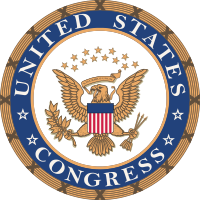 On October 19, two bipartisan bills allowing increased monitoring of online political advertising were introduced in the U.S. Congress. Companion bills House Resolution 4077, The Honest Ads Act, and Senate Bill 1989 direct the Federal Election Commission to enact rules for online advertisements similar to currents rules for television and radio. Larger digital platforms would be required to make available to the public requests to run political advertisements costing more than $500.
On October 19, two bipartisan bills allowing increased monitoring of online political advertising were introduced in the U.S. Congress. Companion bills House Resolution 4077, The Honest Ads Act, and Senate Bill 1989 direct the Federal Election Commission to enact rules for online advertisements similar to currents rules for television and radio. Larger digital platforms would be required to make available to the public requests to run political advertisements costing more than $500.
The bills were introduced by U.S. Representatives Derek Kilmer and Mike Coffman and Senators Amy Klobuchar, Mark Warner, and John McCain in response to “revelations that a Russian company purchased upwards of 3,000 political advertisements on Facebook in an effort to influence the 2016 Presidential election,” according to a press release by Kilmer.
“Our bipartisan bill makes sure our laws are as up to date as the latest technology, and makes it harder for foreign actors to use the internet to attack our democracy,” Kilmer said in his press release.
October 12, 2017 •
FEC Seeks Comments Concerning Internet Communications Disclaimers
On October 10, the Federal Election Commission (FEC) extended the comment period concerning internet communications disclaimers regulations to November 9. The FEC is specifically requesting comments addressing advertisements on internet-enabled applications and devices. Originally the FEC had published an Advance […]
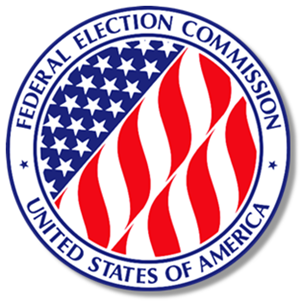 On October 10, the Federal Election Commission (FEC) extended the comment period concerning internet communications disclaimers regulations to November 9. The FEC is specifically requesting comments addressing advertisements on internet-enabled applications and devices.
On October 10, the Federal Election Commission (FEC) extended the comment period concerning internet communications disclaimers regulations to November 9. The FEC is specifically requesting comments addressing advertisements on internet-enabled applications and devices.
Originally the FEC had published an Advance Notice of Proposed Rulemaking seeking comment on October 13, 2011, and then again on October 18, 2016, “in light of legal and technological developments since [the 2011 notice] was published,” according to the FEC. This week, the Commission has decided to again reopen the comment period to receive additional comments once more because of technological changes since the last comment period ended.
The FEC is also seeking comments addressing “possible regulatory approaches that could minimize the need for serial revisions of regulations in order to adapt to new or emerging technologies,” according to the FEC notice of October 10.
Federal regulations require disclaimers identifying who paid for a political campaign communication and whether the communication was authorized by a candidate. The FEC is not proposing changes to any other rules adopted in the Internet Communications rulemaking of 2006.
September 14, 2017 •
President Nominates Trey Trainor for FEC Commissioner
On September 12, President Donald J. Trump nominated Trey Trainor to serve as a commissioner on the Federal Election Commission (FEC). Trainor is a lawyer licensed in Texas who specializes in election law, campaign finance, and ethics. Trainor previously served […]
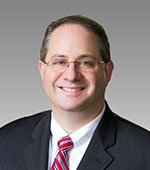 On September 12, President Donald J. Trump nominated Trey Trainor to serve as a commissioner on the Federal Election Commission (FEC). Trainor is a lawyer licensed in Texas who specializes in election law, campaign finance, and ethics. Trainor previously served in the president’s administration as a Special Assistant to the Secretary of Defense, James Mattis, in the Department of Defense, Office of General Counsel.
On September 12, President Donald J. Trump nominated Trey Trainor to serve as a commissioner on the Federal Election Commission (FEC). Trainor is a lawyer licensed in Texas who specializes in election law, campaign finance, and ethics. Trainor previously served in the president’s administration as a Special Assistant to the Secretary of Defense, James Mattis, in the Department of Defense, Office of General Counsel.
Last week it was announced Commissioner Matthew Spencer Petersen would be stepping down after being nominated by the president to serve as a District Judge on the U.S. District Court for the District of Columbia.
With the appointment of Trainor, and with Petersen’s absence, there will be three registered members of the Republican Party, one registered member of the Democratic Party, and one Independent, Chairman Steven T. Walther. One seat still remains vacant. The FEC requires at least four commissioners to agree for any official action.
To become a commissioner, Trainor must now be confirmed by the U.S. Senate.
September 7, 2017 •
Trump Nominates FEC Commissioner for Federal Judgeship
On September 7, President Donald J. Trump nominated Matthew Spencer Petersen, a commissioner with the Federal Election Commission (FEC), to serve as a District Judge on the U.S. District Court for the District of Columbia. Petersen, a Republican, is one […]
 On September 7, President Donald J. Trump nominated Matthew Spencer Petersen, a commissioner with the Federal Election Commission (FEC), to serve as a District Judge on the U.S. District Court for the District of Columbia. Petersen, a Republican, is one of the five remaining FEC commissioners.
On September 7, President Donald J. Trump nominated Matthew Spencer Petersen, a commissioner with the Federal Election Commission (FEC), to serve as a District Judge on the U.S. District Court for the District of Columbia. Petersen, a Republican, is one of the five remaining FEC commissioners.
Without Peterson, the FEC will have only four of the six required commissioners serving, all with expired terms. With Petersen’s absence from the FEC there will remain two registered members of the Republican Party, one registered member of the Democratic Party, and one Independent, Chairman Steven T. Walther.
The FEC requires at least four commissioners to agree for any official action. A replacement for Petersen will be selected by the president and then confirmed by the U.S. Senate. No more than three members of the FEC may be registered with the same political party.
May 24, 2017 •
FEC Launches Redesigned Website
Today, the Federal Election Commission (FEC) launched a newly revamped website. The new website has been in public beta form since October 2015. The organization of the website is broken down into three main areas: campaign finance data, candidate and […]
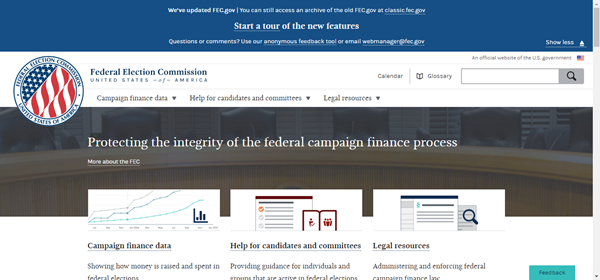 Today, the Federal Election Commission (FEC) launched a newly revamped website. The new website has been in public beta form since October 2015.
Today, the Federal Election Commission (FEC) launched a newly revamped website. The new website has been in public beta form since October 2015.
The organization of the website is broken down into three main areas: campaign finance data, candidate and committee information and help, and legal resources. Included in the redesigned website’s new infrastructure is increased HTTPS security and database synchronization and new search functions and visual graphics meant to create an easier user experience.
An archive of the old FEC website is still available at http://classic.fec.gov and is still being used for links not yet brought forward into the updated website.
On May 22, the United States Supreme Court affirmed a lower court’s finding of summary judgement upholding the constitutionality of the Federal Election Campaign Act’s regulation of the use of so-called soft money. In Republican Party of Louisiana v. FEC, […]
 On May 22, the United States Supreme Court affirmed a lower court’s finding of summary judgement upholding the constitutionality of the Federal Election Campaign Act’s regulation of the use of so-called soft money.
On May 22, the United States Supreme Court affirmed a lower court’s finding of summary judgement upholding the constitutionality of the Federal Election Campaign Act’s regulation of the use of so-called soft money.
In Republican Party of Louisiana v. FEC, the United States District Court for the District of Columbia rejected a challenge to federal campaign finance provisions requiring state and local political parties to abide by federal regulations concerning certain political activities such as get-out-the-vote and voter registration drives and the resulting reporting requirements.
In response to an appeal from the plaintiffs, the Supreme Court affirmed the District Court’s decision.
March 27, 2017 •
House Bill Aims to Prohibit Foreign-Owned Corporations From Participating in US Elections
On March 19, U.S. Rep. Jamie Raskin introduced a bill to close a campaign finance loophole allowing foreign-owned, foreign-controlled, and foreign-influenced corporations to indirectly participate in U.S. elections. H.R. 1615, the Get Foreign Money Out of U.S. Elections Act, amends […]
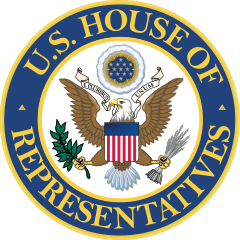 On March 19, U.S. Rep. Jamie Raskin introduced a bill to close a campaign finance loophole allowing foreign-owned, foreign-controlled, and foreign-influenced corporations to indirectly participate in U.S. elections.
On March 19, U.S. Rep. Jamie Raskin introduced a bill to close a campaign finance loophole allowing foreign-owned, foreign-controlled, and foreign-influenced corporations to indirectly participate in U.S. elections.
H.R. 1615, the Get Foreign Money Out of U.S. Elections Act, amends the Federal Election Campaign Act of 1971 to expand the ban on contributions and expenditures by foreign nationals under the Act to foreign-controlled, foreign-influenced, and foreign-owned domestic corporations.
In his press release, Raskin, a constitutional law professor, said, “The problem is that domestically registered corporations can be taken-over, bought-up, controlled, or influenced by foreign corporations and foreign nationals, and this means foreign powers have an easy and perfectly lawful way to funnel foreign money into American elections.” Upon introduction, the bill was referred to the House Administration committee.
January 13, 2017 •
FEC Unable to Agree on Rulemaking Concerning Foreign Influence on Political Spending
On January 12, the Federal Election Commission (FEC) was unable to agree on a policy to clarify when and if a U.S. domestic subsidiary corporation of a foreign national is illegally involved in political activity. Federal law prohibits foreign nationals from […]
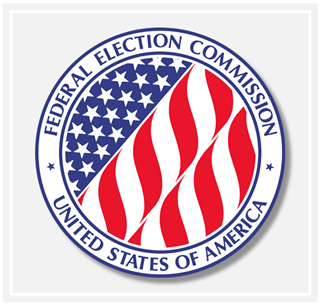 On January 12, the Federal Election Commission (FEC) was unable to agree on a policy to clarify when and if a U.S. domestic subsidiary corporation of a foreign national is illegally involved in political activity.
On January 12, the Federal Election Commission (FEC) was unable to agree on a policy to clarify when and if a U.S. domestic subsidiary corporation of a foreign national is illegally involved in political activity.
Federal law prohibits foreign nationals from directly or indirectly making contributions, donations, expenditures, independent expenditures, and disbursements in connection with federal, state, or local elections. FEC regulations also prohibit foreign nationals from directing, controlling, or participating in the decision-making process of any person, such as a corporation, with regards to decisions concerning the making of contributions, donations, expenditures, or disbursements in connection with elections in the U.S.
Additionally, the FEC was unable to reach an agreement on the creation of a safe harbor for political committees to accept corporate contributions deemed not to have come from foreign national sources.
In response, Vice Chair Caroline C. Hunter and Commissioners Matthew S. Petersen and Lee E. Goodman issued a statement.
A previous attempt to reach an agreement on this issue in September also failed.
September 28, 2016 •
Court Decision Concerning FEC Rule Limiting Disclosure for Certain Ads Stands
On September 26, the U.S. Court of Appeals for the District of Columbia Circuit let stand a previous decision upholding a Federal Election Commission (FEC) rule concerning contributor disclosure for certain political advertisements. Specifically, the court denied a petition for […]
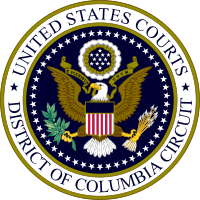 On September 26, the U.S. Court of Appeals for the District of Columbia Circuit let stand a previous decision upholding a Federal Election Commission (FEC) rule concerning contributor disclosure for certain political advertisements. Specifically, the court denied a petition for a rehearing en banc of a previous ruling.
On September 26, the U.S. Court of Appeals for the District of Columbia Circuit let stand a previous decision upholding a Federal Election Commission (FEC) rule concerning contributor disclosure for certain political advertisements. Specifically, the court denied a petition for a rehearing en banc of a previous ruling.
In January, the appellate court had reversed a lower court ruling and rejected the challenge from Maryland Rep. Chris Van Hollen (D) concerning the FEC rule about reporting of electioneering communications or advertisements picturing or naming candidates within 60 days of an election. In doing so, the federal appeals court upheld the FEC rule requiring public reporting only of donors who earmark contributions for the ads. Van Hollen and other campaign finance disclosure advocates argued the rule was too narrow and did not conform to a 2002 law prohibiting “soft money” in federal elections.
Fred Wertheimer, who backed Van Hollen’s lawsuit, said the ruling would not be appealed, according to Bloomberg BNA.
September 23, 2016 •
FEC Names New Acting General Counsel
On September 22, Lisa J. Stevenson was named acting general counsel for the Federal Election Commission (FEC). Stevenson is replacing Daniel A. Petalas, who is leaving the FEC join the Washington, D.C., law firm Garvey Schubert Barer. Because the FEC […]
 On September 22, Lisa J. Stevenson was named acting general counsel for the Federal Election Commission (FEC).
On September 22, Lisa J. Stevenson was named acting general counsel for the Federal Election Commission (FEC).
Stevenson is replacing Daniel A. Petalas, who is leaving the FEC join the Washington, D.C., law firm Garvey Schubert Barer.
Because the FEC has not been able to agree on a general counsel since 2013, the appointments have been designated as acting general counsel.
Today, a federal court ruled an unconnected committee should be allowed to use candidates’ names in the titles of their websites and social media pages while the case is being resolved. In Pursuing America’s Greatness v. FEC, the United States […]
 Today, a federal court ruled an unconnected committee should be allowed to use candidates’ names in the titles of their websites and social media pages while the case is being resolved.
Today, a federal court ruled an unconnected committee should be allowed to use candidates’ names in the titles of their websites and social media pages while the case is being resolved.
In Pursuing America’s Greatness v. FEC, the United States Court of Appeals for The District of Columbia Circuit reversed the district court’s denial of a preliminary injunction and remanded the case for the district court to enter a preliminary injunction enjoining the Federal Election Commission (FEC) from enforcing the application of 11 C.F.R. § 102.14(a) against the plaintiff pending the outcome of the case.
Federal law requires a candidate’s committee to include the name of the candidate in the committee’s title and requires an unauthorized political committee to not use a candidate’s name in its title. The purpose of the law is to avoid confusion. Through regulation, the FEC has extended the naming prohibition to other committee activities, solicitations, and communications, including special project names for websites or social media pages.
The court found there is a substantial likelihood the regulation violates the First Amendment and the plaintiff will prevail in the lawsuit because the FEC has not shown the regulation is the least restrictive means of achieving the government’s interest.
Two delegates to the 2016 Republican National Convention are permitted to receive free legal services from corporate nonprofit organizations thanks to a legal settlement between the delegates and the Federal Election Commission (FEC). On July 22, in Two Unnamed Plaintiffs […]

Two delegates to the 2016 Republican National Convention are permitted to receive free legal services from corporate nonprofit organizations thanks to a legal settlement between the delegates and the Federal Election Commission (FEC).
On July 22, in Two Unnamed Plaintiffs v. FEC, the U.S. District Court for the District of Wyoming issued an order consenting to the settlement between the parties. The case arose from concerns that presidential candidate Donald Trump would bring litigation against those supporting delegate autonomy at the Republican National Convention, according to a press release from Pillar of Law Institute.
Benjamin Barr, lead counsel in the case, believes this settlement provides precedent for future convention delegates, including delegates at this week’s Democratic National Convention. “With this win, conscientious delegates now and for conventions to come are not alone. Non-profit corporations are free to help fund their efforts and donate legal services, breathing new life into the convention process,” said Barr in the press release.
Earlier this month, the Federal Election Commission dismissed complaints against two North Dakota Republican leaders regarding foreign campaign contributions received from a Canadian businessman. The Federal Election Campaign Act bars foreign nationals from making financial donations in connection with federal, […]
 Earlier this month, the Federal Election Commission dismissed complaints against two North Dakota Republican leaders regarding foreign campaign contributions received from a Canadian businessman.
Earlier this month, the Federal Election Commission dismissed complaints against two North Dakota Republican leaders regarding foreign campaign contributions received from a Canadian businessman.
The Federal Election Campaign Act bars foreign nationals from making financial donations in connection with federal, state or local elections.
The politicians claim they accepted the contributions based on incorrect advice received from the North Dakota Secretary of State’s Office. The FEC ultimately dismissed the complaints because the contributions were refunded within the 30-day time period allowed by commission regulations.
April 15, 2016 •
FEC Discusses Motion for Rule-Making Concerning Political Expenditures and Contributions from Foreign Nationals
On April 14, the Federal Election Commission (FEC) considered a motion to open a rule-making concerning whether to require entities accepting political contributions from corporations to verify those corporations are associations of United States citizens who are eligible to contribute. […]
 On April 14, the Federal Election Commission (FEC) considered a motion to open a rule-making concerning whether to require entities accepting political contributions from corporations to verify those corporations are associations of United States citizens who are eligible to contribute. Commissioner Ellen L. Weintraub had previously submitted the motion contending there is “no framework in place to assist entities accepting political contributions or making independent expenditures and electioneering communications in complying with existing law.” Federal law prohibits foreign nationals from making political contributions and expenditures. Federal contractors are also prohibited from making certain political contributions and expenditures.
On April 14, the Federal Election Commission (FEC) considered a motion to open a rule-making concerning whether to require entities accepting political contributions from corporations to verify those corporations are associations of United States citizens who are eligible to contribute. Commissioner Ellen L. Weintraub had previously submitted the motion contending there is “no framework in place to assist entities accepting political contributions or making independent expenditures and electioneering communications in complying with existing law.” Federal law prohibits foreign nationals from making political contributions and expenditures. Federal contractors are also prohibited from making certain political contributions and expenditures.
The commission also discussed a motion for rule-making regarding political funding from foreign nationals. The motion asks the commission to make a regulation requiring those making independent expenditures to certify no resources owned or controlled by foreign nations were used. The FEC has tentatively scheduled to meet at the FEC headquarters on June 23 to discuss corporations and foreign money.
State and Federal Communications, Inc. provides research and consulting services for government relations professionals on lobbying laws, procurement lobbying laws, political contribution laws in the United States and Canada. Learn more by visiting stateandfed.com.


